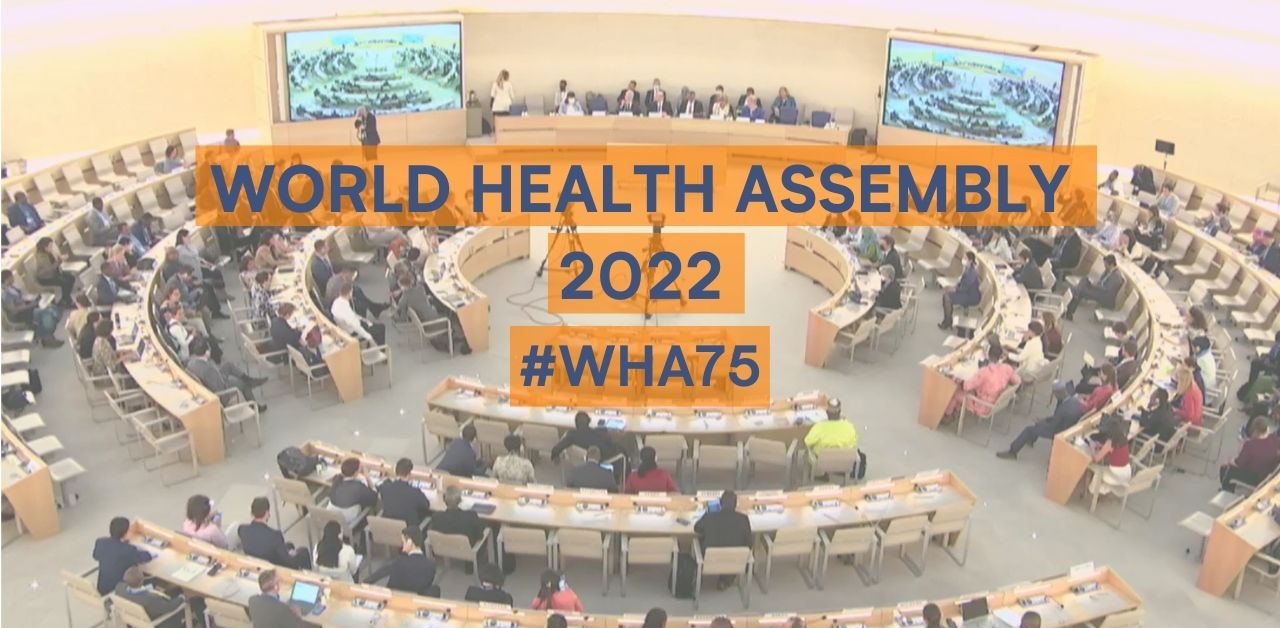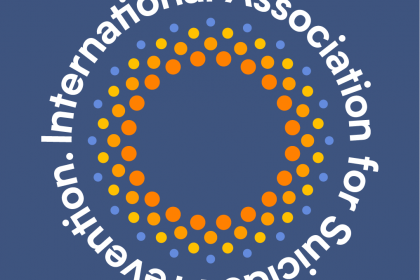The World Health Assembly, the decision-making body of the World Health Organization (WHO), is held annually in Geneva, Switzerland. This year, it was the first in-person event since the outbreak of the COVID-19 pandemic. This year’s theme for the Assembly was “Health for peace, peace for health”, befitting a world that has been affected by emergencies such as the COVID-19 pandemic, climate change, war, and other issues.
The Assembly plays a crucial role in making decisions about different countries’ health goals and strategies. Attended by delegates from member states of 194 countries, it is also a place to share the progress made by countries on health indicators and galvanize change by striving to work together for a common cause, i.e., improving health outcomes for all.
One of the key topics under discussion was the implementation road map 2023–2030 for the global action plan for the prevention and control of noncommunicable diseases (including mental health and suicide prevention). Specifically, item 14.1 focused on the follow-up to the political declaration of the General Assembly on the prevention and control of non-communicable diseases.
In his opening speech, Dr. Tedros Adhanom Ghebreyesus, Director-General of WHO, emphasized the effects of the COVID-19 pandemic and the importance of vaccination coverage. The First Lady of Ukraine Olena Zelenska also delivered a message at the 75th World Health Assembly where she highlighted the negative effects of the ongoing conflict on mental health and emphasized the rehabilitation of people affected by it. She also hoped that Ukraine would set a global example to strengthen support for mental health and the psychosocial well-being of survivors and looked forward to everyone’s support. Other country delegates, in their statements, called on the international community to raise awareness about mental health, increase investment, and launch campaigns for stigma reduction. It was encouraging to witness mental health being considered an important agenda by member states, delegates, and the WHO at the Assembly. The more attention it gets on a world forum, the more countries are likely to implement favorable policies in mental health service delivery and stigma reduction.
During agenda item 14.1, the International Association for Suicide Prevention (IASP) collaborated with the World Heart Foundation (lead), Alzheimer’s Disease International (ADI), Global Health Council (GHC), International Diabetes Federation (IDF), International Society of Nephrology (ISN), Movendi International, World Cancer Research Fund (WCRF) International, and the World Stroke Organization (WSO) on a statement focusing on the importance of action on NCDs and mental health, including cardiovascular diseases (CVD), suicide prevention, and dementia. The statement commended the inclusion of people with lived experience in service development.
IASP is well placed to engage in these world forums and to disseminate a message about the importance of suicide prevention in achieving the Sustainable Development Goals (SDGs). As holistic mental health and well-being are being advocated as an agenda priority, IASP continues to push for suicide prevention efforts to be integrated within universal health coverage. This is especially important in low- and middle-income countries where the mental health treatment gap is huge, and the lack of data makes it difficult to determine the efficiency of preventive services.
To conclude, Health for All is not possible without the inclusion of mental health and suicide prevention. Considering the focus on the promotion of mental health within the Global Action Plan for the Prevention and Control of NCDs 2013–2030, alongside the suicide mortality rate being an indicator within UN SDG Goal 3, we call for the WHO and member states to further prioritize principles within the Comprehensive Mental Health Action Plan 2013-2030 and embed suicide prevention within mental health law and policy and multisectoral mental health promotion and action.





